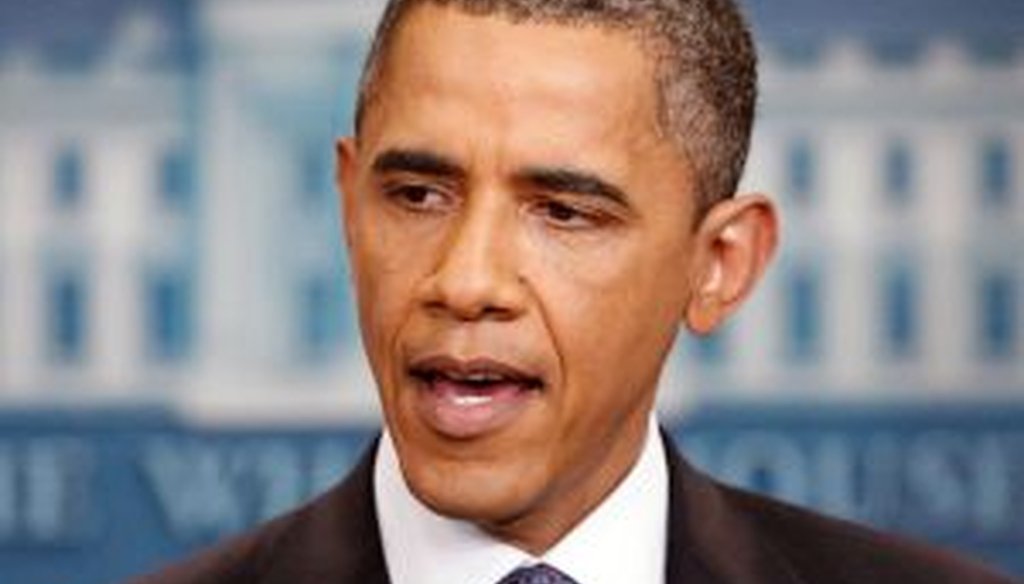Get PolitiFact in your inbox.

At a news conference Friday evening, President Obama announced that talks to raise the debt ceiling have broken off.
At an impromptu news conference Friday evening, President Barack Obama said talks to raise the debt ceiling had broken off because Speaker John Boehner had said he could no longer participate. Obama said that he had "been left at the altar a couple of times" and repeated a claim he'd been making for several weeks.
He said that "a vast majority of the American people support a balanced deal" that would include spending cuts and tax increases. We rated a very similar claim a week ago when Obama said, "Eighty percent of the American people support an approach that includes revenues and includes cuts." We rated that Mostly True, finding that his overall point was correct, but that most polls put it in the 50 percent to 70 percent range.
Obama also said a week ago that even Republican voters "think that any deficit reduction package should have a balanced approach and should include some revenues." We rated that Barely True. At the time, different polls showed different results, with Republicans sometimes evenly split or even opposed.
Obama has also been invoking President Ronald Reagan for support. He did it Friday evening just as he did earlier in the week, when Obama said Reagan "repeatedly talked about how irresponsible it would be to allow the full faith and credit of the United States to be impaired in any kind of way." We rated that Mostly True. Reagan's main themes were lower taxes and less spending, but he also talked about the importance of not allowing for the creditworthiness of the United States to be questioned.
In looking at other claims about the nation's debt problems, we examined an ad from Crossroads GPS that said "Our country's got this huge debt, and Obama says raise taxes and keep spending more." We rated that Half True, because Obama has said some taxes should be increased, but he's also offered to cut spending.
We've also looked at a statement from Obama on whether people will get Social Security checks and other benefit checks from the federal government. He said, "I cannot guarantee that those checks go out on August 3rd if we haven't resolved this issue, because there may simply not be the money in the coffers to do it." We rated that Half True. There are likely steps that can be taken to make sure Social Security checks continue to go out, but the situation is still uncertain.
We looked at a statement from U.S. Treasury Secretary Timothy Geithner, who said that for people in the top 1 percent for income, "your effective tax burden is in the low 20s, the lowest it’s been in decades and decades and decades -- lower than somebody who might make substantially less money." We found that was largely correct when he said the top 1 percent pay rates in the low 20s, which is historically low. But he's wrong that the wealthiest enjoy lower effective rates. We rated the statement Half True.
Finally, we looked at a statement from Grover Norquist, president of Americans for Tax Reform. Norquist said, "Every time we've cut the capital gains tax, the economy has grown. Whenever we raise the capital gains tax, it's been damaged." Actually, economic growth has historically shown no connection to changes in the capital gains tax rate. We rated his statement False.
Our Sources
See individual items for complete sources.





















































